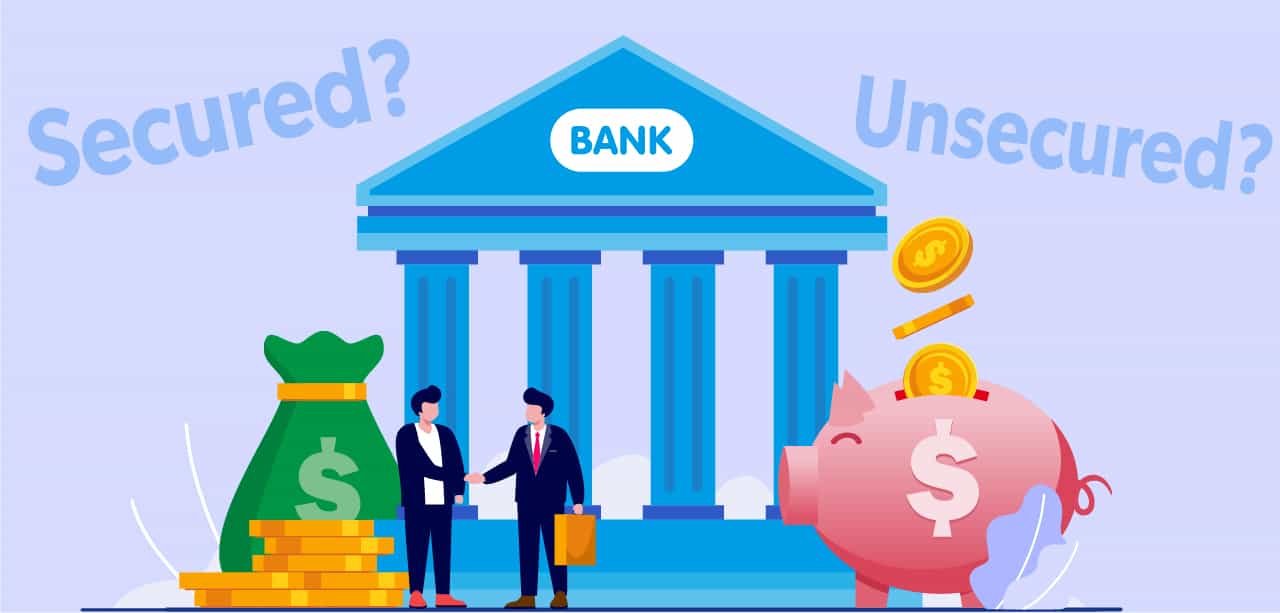January 15, 2021
Are SBA Loans Secured or Unsecured?
Every SBA loan in the SBA’s 7(a) program requires collateral to secure the loan above certain loan amount thresholds. That said, it’s possible to obtain an unsecured SBA loan for smaller loan amounts.
For example, on the Standard 7(a) loan, lenders aren’t required to take collateral for loans up to $25,000. However, 7(a) loans greater than $350,000 must be secured with collateral worth as much as possible, up to the loan amount.
Whether your SBA loan is secured or unsecured has significant consequences for your credit score, business finances, and your lender. All else equal, secured financing is less expensive but carries more downside risk for you. The opposite is true for unsecured financing.
The problem is, an SBA loan’s securitization requirements vary based on the type and amount of the loan. To help you solve that problem, this article will walk through which loan options are secured and unsecured. Then, we’ll explain how SBA loans compare to other funding options.

Collateral Requirements for Six Types of SBA Loans
The 7(a) loan program is the SBA's primary program for small business financing. Within that program are six types of loans with various terms and conditions. In the following sections, you’ll see each loan and its collateral requirements. It's crucial to understand each loan program's collateral rules and repayment terms prior to submitting a loan application.1. Standard 7(a)
As explained earlier, Standard 7(a) SBA loans don’t require collateral as long as the loan amount is $25,000 or less. Above that amount, any Standard 7(a) loan must be secured with collateral. However, if you plan to borrow money in an amount that's greater than $25,000 but less than $350,000, the amount of collateral required is up to the individual lender. In other words, specific securitization requirements from the SBA only apply to 7(a) loans above $350,000. Otherwise, it’s up to the lender to create their own collateral requirements.2. 7(a) Small Loan
As with the Standard 7(a) loan, lenders aren’t required to take collateral for 7(a) small loans up to $25,000. Though for 7(a) Small Loans above $25,000, the lender must place a lien on the assets you purchase with the loan proceeds and your fixed assets. Keep in mind, that’s just the minimum collateral requirement. Beyond that requirement, individual lenders will use the same collateral policy they do for non-SBA loans.3. SBA Express
An SBA Express loan is similar to 7(a) small loans in their securitization requirements. With SBA Express loans, collateral isn’t required for loans up to $25,000. However, for loan amounts above $25,000 and up to $350,000, lenders must use their existing collateral policies.